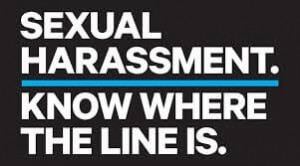 On April 10, 2018, Governor Andrew Cuomo signed the New York State Budget Bill, which includes a mandate for employers designed to prevent sexual harassment in the workplace. Under the mandate, New York employers will be required to provide sexual harassment training to all workers. Employers without anti-harassment policies should start designing and implementing them soon.
On April 10, 2018, Governor Andrew Cuomo signed the New York State Budget Bill, which includes a mandate for employers designed to prevent sexual harassment in the workplace. Under the mandate, New York employers will be required to provide sexual harassment training to all workers. Employers without anti-harassment policies should start designing and implementing them soon.
Starting today, nondisclosure clauses in agreements to settle claims relating to sexual harassment are prohibited, unless the condition of confidentiality is the employee’s preference. This provision must be provided to both parties for consideration, and the complainant then has 21 days to consider it. If after 21 days the complainant agrees to the nondisclosure provision, the provision must be included in a written agreement. The complainant will then have seven days in which to revoke the agreement. The agreement does not become effective until the seven-day revocation period. Additionally, except where inconsistent with federal law, a written contract may not contain a mandatory arbitration clause. Arbitration clauses may be upheld if they are part of a collective bargaining agreement.
Effective October 9, 2018, employers must implement annual sexual harassment training. The New York Department of Labor is expected to release a sexual harassment model program for employers to use. Employers may also choose to create their own sexual harassment training programs that meet or exceed the law’s requirements. The training must be interactive and include:
- an explanation of what constitutes sexual harassment;
- examples of conduct that would constitute unlawful harassment;
- information on state and federal laws concerning sexual harassment and remedies available to victims; and
- information on employees’ rights and all available forums for adjudicating complaints administratively and judicially.
Employers must also adopt a written sexual harassment prevention policy and distribute it to employees. As with the training, the New York Department of Labor will provide a model policy that employers may choose to use. The policy must include:
- a statement prohibiting sexual harassment and provide examples of prohibited conduct that would constitute unlawful sexual harassment;
- information concerning the federal and state statutory provisions concerning sexual harassment and remedies available to victims of sexual harassment and a statement that there may be applicable local laws;
- a standard complaint form;
- a procedure for a timely and confidential investigation of complaints and ensure due process for all parties;
- the rights of redress and available forums for adjudicating sexual harassment complaints administratively and judicially;
- a statement that sexual harassment is considered a form of employee misconduct and that sanctions will be enforced against individuals engaging in sexual harassment and against supervisory and managerial personnel who knowingly allow such behavior to continue; and
- a statement that retaliation against individuals who complain of sexual harassment or who testify or assist in any proceeding under the law in unlawful.
Employers in the state of New York are encouraged to monitor the state department of labor website for more information on the sexual harassment model policy and training.
